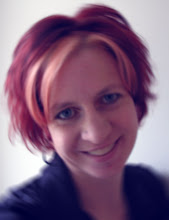In my January Mankato Magazine column, I wrote about my favorite outdoor adventure books. I included Jon Krakauer's Into the Wild and Into Thin Air, Wilfred Thesiger's Arabian Sands, and Paul Schurke and Will Steger's North to the Pole.
What are your favorite outdoor adventure books?
Saturday, December 31, 2011
Friday, December 30, 2011
Writing resolutions
My awesome, successful writer friend Kirstin Cronn-Mills inspired me to come up with my own list of writing resolutions for 2012. The pressure is on!
Writing resolution #1: Do something writing-related every day. This doesn’t necessarily have to mean writing. It can involve reading a blog post, reading writing tips, reading in general, connecting with a writer via Twitter/LinkedIn, finding an agent/publisher to add to my list, scribbling an idea on an index card. Keep a daily journal to track these things.
Writing resolution #2: Write things down! Often I think of ideas in my head and I let them live there. Sometimes I capture them, but other times they’re lost to the wind. Start scribbling things down, especially as they relate to new ideas for books/essays.
Writing resolution #3: Read about creativity, inspiration, intention. I already have tackled a couple of books in this realm: How to Think Like Leonardo da Vinci, by Michael Gelb, and Write It Down, Make It Happen, by Henriette Anne Klauser. If anyone has any other recommendations, please let me know!
Wish me luck!
Writing resolution #1: Do something writing-related every day. This doesn’t necessarily have to mean writing. It can involve reading a blog post, reading writing tips, reading in general, connecting with a writer via Twitter/LinkedIn, finding an agent/publisher to add to my list, scribbling an idea on an index card. Keep a daily journal to track these things.
Writing resolution #2: Write things down! Often I think of ideas in my head and I let them live there. Sometimes I capture them, but other times they’re lost to the wind. Start scribbling things down, especially as they relate to new ideas for books/essays.
Writing resolution #3: Read about creativity, inspiration, intention. I already have tackled a couple of books in this realm: How to Think Like Leonardo da Vinci, by Michael Gelb, and Write It Down, Make It Happen, by Henriette Anne Klauser. If anyone has any other recommendations, please let me know!
Wish me luck!
Thursday, December 15, 2011
A best books of 2011 list we can all appreciate
Thank you, National Book Critics Circle, for posting a "best of the small presses" list for 2011. Small presses is where it's happening. It's a joy to see beautiful writing get wider recognition.
View the list here.
Have you read any? Which ones do you want to read? I'll go with Bonnie Nadzam's LAMB. Sounds like an intriguing story, and Nadzam went to Carleton College in Northfield. And since I'm a narrative nonfiction fan, I'm putting LAST DAY ON EARTH by David Vann on the list.
View the list here.
Have you read any? Which ones do you want to read? I'll go with Bonnie Nadzam's LAMB. Sounds like an intriguing story, and Nadzam went to Carleton College in Northfield. And since I'm a narrative nonfiction fan, I'm putting LAST DAY ON EARTH by David Vann on the list.
Monday, December 5, 2011
Update to December Mankato Magazine column
My latest gig is writing an outdoors column in the winter months for Mankato Magazine. (Columns not available online; the magazine comes with some subscriptions to The Free Press or can be bought at Barnes and Noble). In December, I wrote about the sometimes odd shoes that outdoor enthusiasts collect. I ended the column with a wish for Bontrager cycling shoes, and I'm happy to report I received them for my birthday! Well, they were a birthday present to myself, along with this:
Her name is QR. Isn't she pretty?
Her name is QR. Isn't she pretty?
Friday, October 14, 2011
Using social media wisely
Do you want to be that annoying Facebook or Twitter person? Or do you want people to truly admire you, respect you, think highly of you? If the latter, read the first part of this Chronicle of Higher Education blog post. I'm not sure I've seen it articulated so well.
First paragraph:
"I have two colleagues who are extraordinarily talented and highly visible. While both are recognized for their drive, intelligence, and expertise, people tend to find one of them charming and the other one annoying. What accounts for the difference? It’s really pretty simple. One promotes ideas, while the other promotes herself. One shares information and the other shares what can only be characterized as personal press releases. One celebrates the accomplishments of her colleagues, while the other thanks her colleagues for making her success possible."
So wise, Allison M. Vaillancourt!
First paragraph:
"I have two colleagues who are extraordinarily talented and highly visible. While both are recognized for their drive, intelligence, and expertise, people tend to find one of them charming and the other one annoying. What accounts for the difference? It’s really pretty simple. One promotes ideas, while the other promotes herself. One shares information and the other shares what can only be characterized as personal press releases. One celebrates the accomplishments of her colleagues, while the other thanks her colleagues for making her success possible."
So wise, Allison M. Vaillancourt!
Monday, August 22, 2011
My book is taking a nap
I’ve been working seriously on my memoir (on and off) for about six years. In that time, it’s been through many drafts. I completed Draft 5 in early 2010. I was happy with it, I got a few leads from agents and editors, but ultimately nothing came of it. So I put it to bed. It’s been napping ever since.
It’s been a long nap. The book was tired. It had been working awfully hard. Early in the morning, late at night. It got fussy. I got impatient.
But now, I can hear it stirring. It’s not a full-out wailing or crying, but I can tell it’s awake. It’s cooing and babbling to itself. It’s like the baby who’s content in the crib, playing with its feet, or hands batting the mobile.
I want to go to it. I want to see its face, to play with it. I’ve missed it. I’ve been productive while it napped, took care of what needed to be done around here.
But it’s so happily content that for now, I will leave it be. I know it’s awake, and it would welcome arms that would pick it up. But I will wait. I will wait until it squalls, its face burning red. I will wait until I cannot ignore it anymore. It will take some soothing, some love, but it will eventually quiet down and let me work with it.
My book was taking a nap, but now it’s awake.
It’s been a long nap. The book was tired. It had been working awfully hard. Early in the morning, late at night. It got fussy. I got impatient.
But now, I can hear it stirring. It’s not a full-out wailing or crying, but I can tell it’s awake. It’s cooing and babbling to itself. It’s like the baby who’s content in the crib, playing with its feet, or hands batting the mobile.
I want to go to it. I want to see its face, to play with it. I’ve missed it. I’ve been productive while it napped, took care of what needed to be done around here.
But it’s so happily content that for now, I will leave it be. I know it’s awake, and it would welcome arms that would pick it up. But I will wait. I will wait until it squalls, its face burning red. I will wait until I cannot ignore it anymore. It will take some soothing, some love, but it will eventually quiet down and let me work with it.
My book was taking a nap, but now it’s awake.
Tuesday, August 9, 2011
1493
I heard part of Terry Gross' interview with Charles Mann on "Fresh Air" the other day. I learned so much in 15 minutes!
* No domesticated animals (including horses) lived in North America until Columbus and other Europeans arrived.
* Likewise, earthworms were nonexistent on this continent. I was pleased to find out that some forests in Minnesota are still free from earthworm damage and scientists are working hard to protect that habitat before it is irrevocably changed by earthworms.
* Europeans not only brought disease to this continent, but also wreaked environmental havoc.
I probably will get this book, hopefully soon.
* No domesticated animals (including horses) lived in North America until Columbus and other Europeans arrived.
* Likewise, earthworms were nonexistent on this continent. I was pleased to find out that some forests in Minnesota are still free from earthworm damage and scientists are working hard to protect that habitat before it is irrevocably changed by earthworms.
* Europeans not only brought disease to this continent, but also wreaked environmental havoc.
I probably will get this book, hopefully soon.
Subscribe to:
Posts (Atom)



